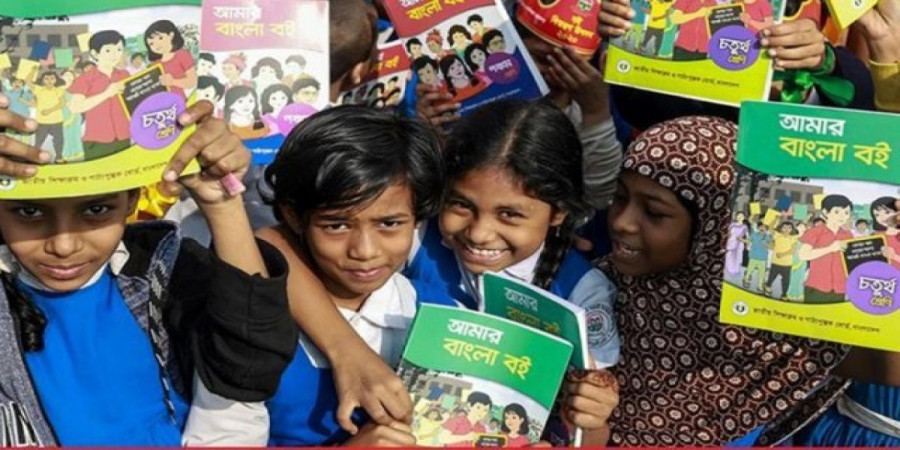
ছবি: Photo: Collected
A recent joint study conducted by the Campaign for Popular Education (CAMPE) and BRAC Institute of Educational Development has highlighted concerning trends in the mental health and behavior of primary school children in Bangladesh. According to the survey, 55.2% of children feel “fearful or anxious” due to political instability, long-term effects of the COVID-19 pandemic, and natural disasters. Additionally, 36.9% of children are showing an aversion to attending school.
These findings were presented during a discussion titled "What We Must Do to Improve Mental Health in Primary School Students" held at the Bangabandhu International Conference Center in Dhaka. The event, organized by CAMPE and BRAC Education Development Institute, brought together stakeholders to address the mental health crisis and its impact on primary education.
The survey results indicate that 36.5% of children are becoming disengaged from their studies, 28.6% are experiencing emotional distress, and 7.9% have developed irritable temperaments. Researchers attribute these issues to the compounded effects of witnessing political violence, school closures, natural disasters, and social isolation during the pandemic.
The study utilized questionnaires to gather data from 203 organizations across eight divisions. It also included 12 consultations, discussions, and regional and national meetings to ensure a comprehensive understanding of the issue.
Dr. Nazmul Haque, Director of the Teacher Development Institute, and Abdur Rauf, Program Manager of CAMPE, presented the findings. They explained how children’s exposure to protests, violence, and political unrest—such as demonstrations, vandalism, and clashes—has left them emotionally scarred. The closure of schools and enforcement of lockdowns during turbulent times has further exacerbated their mental health challenges, creating a form of trauma among students.
The survey found that children are struggling with sleep disturbances, nightmares, depression, loneliness, addiction to digital devices, and increased aggression. Additionally, the study highlighted children’s fear of changes in academic curricula and anxiety over adapting to new systems. Social media exposure to violent images and news has further fueled negative perceptions and diminished their childlike curiosity.
Natural disasters like floods have disrupted children’s education, as many have fallen ill or remained absent from school. Loss of school time and disinterest in studies have compounded these challenges.
Speaking at the event, educationist and member of the 2010 National Education Policy Committee, Principal Kazi Faruq Ahmed, criticized the lack of stakeholder engagement in recent curriculum reforms. He argued that these changes have indirectly affected students’ learning and stressed the importance of parental training to ensure quality education at home.
Primary school teacher leader Shahinur Al Amin proposed promoting cultural activities in schools to help students cope with stress, while fellow educator Abul Kashem emphasized the need to create playgrounds in schools to foster children’s overall development.
The survey presented several recommendations to address the crisis, including:
- Greater coordination among government agencies to mitigate adverse events affecting children’s mental health.
- Initiatives to train teachers and parents to recognize and address students’ emotional and behavioral issues.
- Integration of mental health and well-being programs into school curricula.
- Collaborative efforts to provide a safe and conducive learning environment for all children.
The discussion was chaired by CAMPE’s Executive Director Rasheda K. Choudhury, who reiterated the importance of addressing children’s mental health issues to ensure their access to quality education. She assured that the recommendations from the discussion would be submitted to the government for action.
Dr. Bidhan Ranjan Roy Poddar, Advisor to the Ministry of Primary and Mass Education, urged a shift in social perspectives to accommodate the changing needs of children. He also announced that 10 visually appealing schools would be inaugurated later this month to enhance the learning environment and support students’ mental well-being.
The event also featured remarks from CAMPE Deputy Director Tapan Kumar Das, Senior Advisor to BRAC Institute of Educational Development Dr. Muhammad Musa, and Education Watch Convener Dr. Ahmad Mushtaq Raja Chowdhury. They underscored the urgency of implementing policies and initiatives to improve children’s mental health and sustain their academic engagement.
repoter






